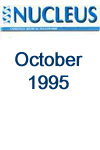After his encounter with the risen Jesus, Saul (as he was then) was blind for 3 days (Acts 9:9), and his sight was restored (9:17-18) when 'something like scales' fell from his eyes.
In later years Paul's eyesight was poor. He refers to a personal illness in his letter to the Galatians (4:14) and implies that this was an eye condition in saying 'if you could have done so, you would have torn out your eyes and given them to me' (v15). He seemed also to have trouble recognising the high priest Ananias (Acts 23:1-5). The word (v 1) translated 'looked straight at'(NIV) can imply straining the eyes to see. The fact that Paul dictated most of his letters (see for example Rom 16:22), and wrote in large letters himself (Gal 6:11) is still further evidence of impaired vision.
Some favour the diagnosis of trachoma. This was endemic in the Middle East at the time and is characterised by conjunctival and corneal scarring following infection by the fly-borne Chlamydia trachomatis. It would certainly account for the symptoms.
Luke, however, given the above history, favours a chronic cicatricial conjunctivitis as a result of the Damascus road experience. Corneal epithelial coagulum (resembling 'scales') can follow a severe electric shock or burn, and this sort of injury could lead to on-going inflammation, dystrichiasis (in-growing eyelashes) and dry eyes. This is a distressing problem not unlike getting sand in the eyes on a dry beach.
Whatever the cause, even in his blindness, Paul has given us a great deal of light.
Differential Diagnosis 15
When David became king over Israel, he arranged for the ark of the covenant (containing Moses' stone tablets with the ten commandments) to be brought back to Jerusalem. On the way, the oxen pulling the cart stumbled, and Uzzah reached out and took hold of the ark, presumably in an attempt to steady it.
For this irreverent act, he was struck down by God and died.
What are the possible mechanisms of Uzzah's death. Which do you think is most likely? (Ex 25:10-22, 37:1-9; 2 Sa 6:1-11; 1 Ch 13:1-14)
Luke's opinion in next issue.
































